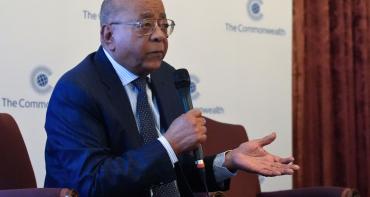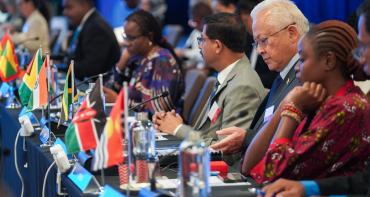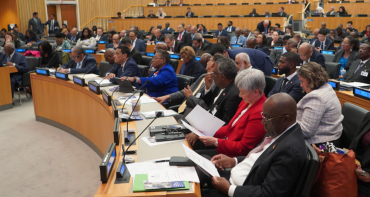A new model law launched by the Commonwealth Secretariat will help countries regulate the rapidly growing virtual assets industry, worth billions of dollars globally.
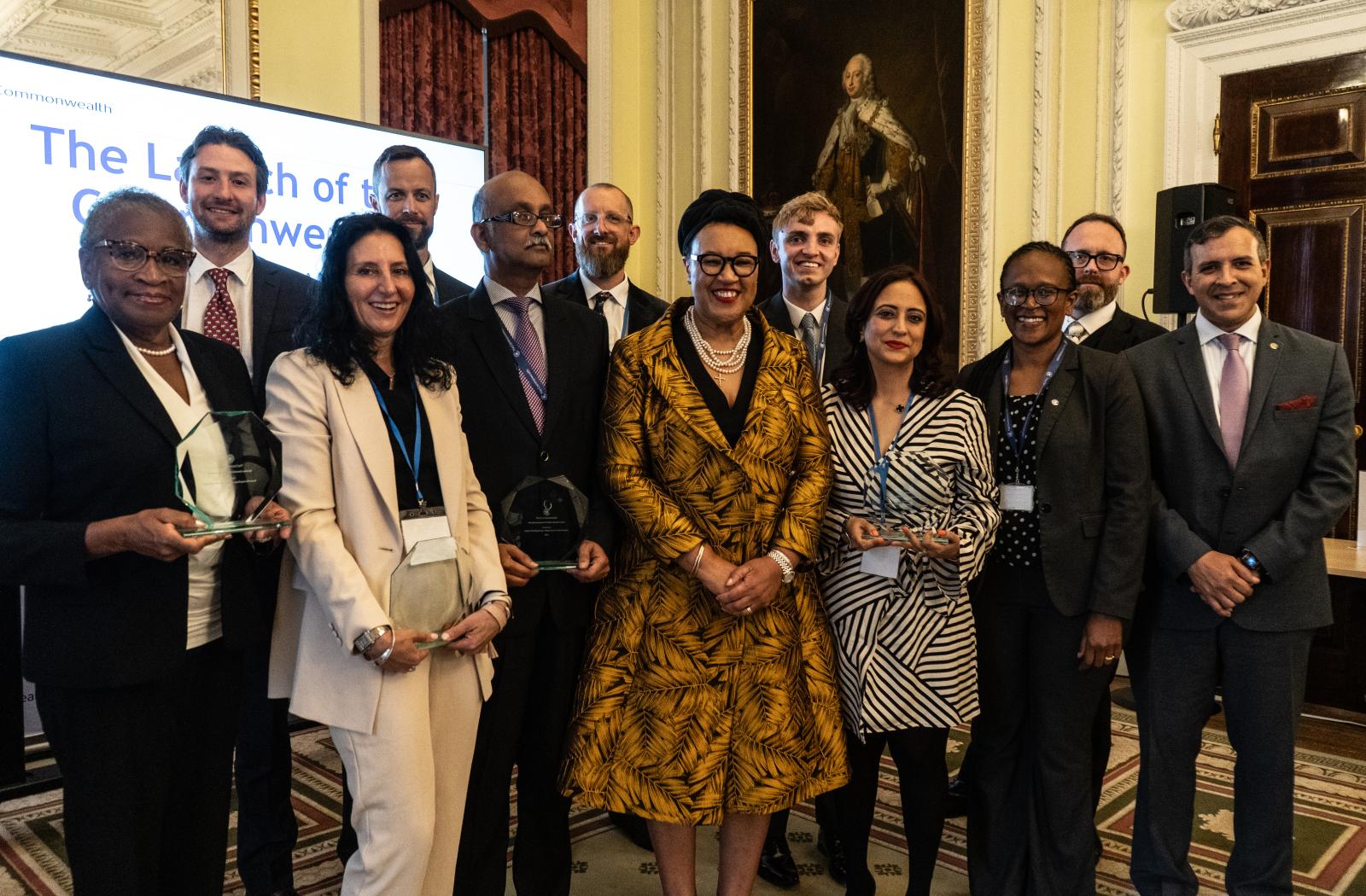
The model law was presented at a high-level event hosted by the Commonwealth Secretariat at its headquarters in London on 8 July 2024.
Virtual assets are a relatively new part of the global financial sector, making regulation essential to protect consumers, tackle illicit activity, and maintain market stability.
International standards compliance
The model law takes a principled approach to regulating virtual assets in line with international standards set out by the Financial Action Task Force, a global rule-making body.
It provides a broad suite of provisions, including licensing virtual assets, such as virtual currencies, defining obligations of issuers, overseeing financial activities, and enforcing penalties for non-compliance.
In particular, the law offers guidance on setting up a framework to prevent the use of virtual assets for money laundering and terrorism financing, while protecting customers and providing businesses with legal clarity and confidence.
Commonwealth countries can use the law as a starting point to draft new legislation or adapt certain provisions to existing statutes to regulate virtual assets, with options customisable to local needs.
At the moment, 19 Commonwealth countries are in the process of using this model law to draft new or amend existing domestic legislation.
Forward-looking framework
Speaking about the model law, the Commonwealth Secretary-General, the Rt Hon Patricia Scotland KC, said:
“The Commonwealth is committed to helping its member countries take full advantage of the technological revolution, including virtual assets.
“This necessitates developing a regulatory framework. Approaching this country-by-country can be costly and time-consuming. By pooling our knowledge and expertise, we can create robust frameworks more quickly, affordably, and effectively.
“Our model law offers a forward-looking framework for Commonwealth countries to regulate virtual assets in line with international standards. This is crucial for strengthening harmonised regulation across the Commonwealth and creating a secure and transparent environment in which the benefits of virtual assets can be harnessed while mitigating significant risks to our citizens.”
Harmonised legislation
While a few Commonwealth countries have domestic laws on virtual assets, with varying levels of scope, there is no binding regulation across the membership. The model law seeks to harmonise legislation on virtual assets to boost innovation, trade and security throughout the Commonwealth.
The drafting process for the model law began in 2022, following a request from Commonwealth law ministers.
The Secretariat set up a working group, consisting of 14 industry experts, including prominent lawyers, financial advisers and technologists. They worked on a pro bono basis to draft and finalise the complex text of the model law through consultations with the Secretariat and member countries.
During the event, the working group was also presented with the Secretary-General’s Pro Bono Heroes Awards for their interdisciplinary work on the model law.
Accepting the award, the group’s lead, Australian expert Loretta Joseph, described the model law as a “significant step forward in creating a cohesive and comprehensive regulatory framework for virtual assets” within the Commonwealth.
She continued:
“Our collaborative effort ensures that we not only keep pace with technological advancements but also set a standard that can be adopted globally to safeguard and empower people who use virtual assets.”
Commonwealth Assistant Secretary-General Prof Luis Franceschi commended the group members for their extraordinary pro bono work.
He added:
“This model of pro bono co-operation has set a high watermark for the Secretariat. We have always wanted to work in this way, to do more with less, to draw from the incredible expertise available across the Commonwealth to improve the lives of the billions of people across our Commonwealth.”
Read the model law on virtual assets
Members of the working group responsible for drafting the model law
1. Rajeshsharma Ramloll, Mauritius
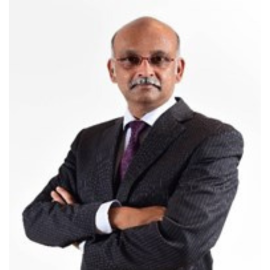
Chair of expert working group. Solicitor-General with extensive experience in tax and financial regulation, known for landmark cases in Mauritius and contributions to international tax treaty negotiations.
2. Loretta Joseph, Australia

Commonwealth pro bono provider. Expert legal advisor in financial services with over 25 years of experience, co-chair of the International Digital Asset Exchange Association, and influential in global virtual assets policy development.
3. Kokila Alagh, United Arab Emirates

Founder of KARM Legal Consultants, specialising in high-risk tech sectors and providing legal advice on Fintech, AI, and virtual assets in the MENA region.
4. Maxine L Binns, Bermuda

Legislative Consultant. Barrister and Attorney with expertise in corporate and commercial law, and instrumental in developing and modernising Bermuda’s legislative framework.
5. Paul Derham, Australia

Managing partner of a leading financial services regulatory law firm, advising global crypto and FinTech companies.
6. Ankita Dhawan, India

Legal consultant with expertise in crypto, AI, and financial services, advising virtual asset providers and representing major tech companies in antitrust matters.
7. Michelle Harwood, Australia

Financial integrity consultant and former Crown Advocate, specialising in anti-money laundering (AML) and countering the financing of terrorism (CFT) implementation and advising international organisations.
8. Jonathan Hatch, Australia
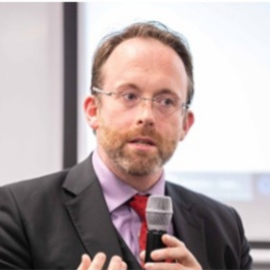
Senior financial services and technology lawyer, advising on regulatory responses to emerging technologies and innovation regimes.
9. Yvan Jean Louis, Mauritius
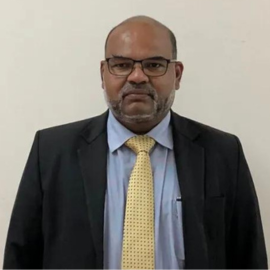
Legislative Drafting specialist. Assistant Solicitor-General, specialising in international trade, financial services, and representing Mauritius in international legal matters.
10. Ian Mathews, United Kingdom

Anti-money laundering (AML) and countering the financing of terrorism (CFT) expert with extensive experience at the Financial Conduct Authority and European Commission, currently a Scientific Expert for MONEYVAL.
11. Rick McDonell, Canada

Co-CEO of McDonell-Nadeau and Executive Director of ACAMS. Former Executive Secretary of the Financial Action Task Force (FATF). Renowned for his work with FATF and global AML/CFT standards development.
12. Josée Nadeau, Canada

Co-CEO of McDonell-Nadeau, AML/CFT consultant, and adjunct professor with extensive experience in FATF standards and international financial regulation.
13. Allan Prochazka, Canada

Managing Director at McDonell-Nadeau, providing strategic advice on financial policy and AML/CFT compliance, and experienced in international financial regulatory matters.
14. Joseph Weinberg, Canada

Co-founder of Shyft Network and digital asset pioneer, advising on global regulatory compliance and due diligence in the virtual asset industry.
Media contact
-
Snober Abbasi, Senior Communications Officer, Communications Division, Commonwealth Secretariat

